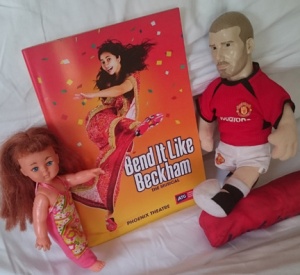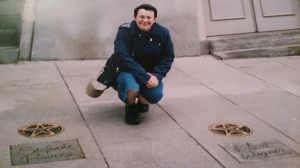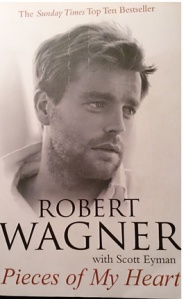Bend It Like Beckham won the Critics’ Circle Theatre Award for Best Musical in January 2016, just a few short days after announcing the production would finish at the Phoenix Theatre on March 5th. The world premiere took place on 15th May 2015 and I watched this joyous show last June and again this past weekend at the Phoenix. On each occasion my husband and I were both enthralled and elated by the wonderful combination of music and dance, which told the mixed tale of sport, culture and dreams. Somehow the production managed to infuse both eastern and western cultures together into a delightful and powerful show, that packed an emotional punch with an amusing under current.
The two football protégés are Jules an English girl from a one parent family and Jess Bhamra the youngest daughter of a Sikh family. Jess is obsessed with David Beckham whilst Jules admires Mia Hamm the US soccer star, and both have their sporting heroes adorning bedroom walls. Jules already plays for a local women’s team (the Harriers) and having spotted Jess’s potential invites her to a trial. They quickly form a formidable partnership on the pitch but Jess has to lie about having a part-time job to continue training, having incurred the wrath of her parents who forbade her to play any longer. So an opportunity for Jess to play in Germany sees her torn between trying to be a dutiful daughter and being true to herself. This is beautifully portrayed at the end of the first half in a dream like sequence. On one side Pinky tells her sister Jess she owes her parents to be dutiful because they have worked so hard, and an eastern dance/music element dominates. On the other side Tony a good friend of Jess tells her she has to take her chance, be herself and show what she can do, and here a western music/sport element prevails. Neither side come together but as Jess clearly makes up her mind to travel to Germany she dreams of playing with David Beckham.
In the first half both mothers are at a loss to understand their daughters and sing the same lament “Tough Love”. Each desperately wants the best for their offspring, yet the girls both feel totally misunderstood and angrily sulk in their room. I found myself annoyed with Mrs Bhamra because she was so entrenched in the traditional ways of her culture and how things were done, she found it virtually impossible to see beyond that and acknowledge that perhaps the world of opportunities for girls was changing in 2001. She and her husband want Jess to go to university but no doubt to make her a better prospect for a future husband, not to make their daughter feel more fulfilled. Jules Mum Paula on the other hand tries so hard to be supportive to her child but usually has the effort thrown back in her face. How I wanted to tell Jules how damned lucky she was to have that kind of unstinting support.
At the start of the second half the audience see that Jess and Jules are effectively two sides of the same coin. Jess sings of being told she is a dreamer because she looks beyond her culture and the traditional expectations of her parents. Jules sings of being told she is a loser for hoping to transcend her class and its limitations. Both travel to Germany and triumph in their game and whilst out celebrating Jess kisses the football coach Joe, not realising that Jules is madly in love with him. This results in a major argument between the girls in the airport back home, witnessed by Jules Mum waving an English flag to celebrate the team win. Believing she has seen a lover’s tiff Paula concludes her daughter Jules must be gay! Jess meanwhile having fallen out with her friend must now go back to her parents, return to being a dutiful daughter helping with her sister’s wedding arrangements, and face the prospect of never playing football again. The mournful traditional wedding song heralds a daughter leaving her old family life to start a new one with her husband. This hauntingly beautiful music is reflected in Jess sadly sitting in her bedroom rolling up her football posters and bagging them for the bin. It looks like something has died in her too. The following day is Pinky Bhamra’s wedding day and also the day of a football final for the Harriers team. An American scout is to be there to watch Jules and Jess play, however Jess is at the temple for the wedding ceremony and looks thoroughly miserable in the process. There is a smashing moment here when Jess sings about her love of the game but her duty to her family is more important. Then Jules sings of missing her friend, Joe about his love for Jess and her amazing football talent, and Tony encourages his friend to slip away from the celebrations to play the second half of the football final. This quartet piece is very striking in its heartfelt interwoven emotion. When the main wedding ceremony is over Mr Bhamra agrees to allow Jess to play in the match if it would make her smile. She dashes off to make the game arriving just after the audience see a funny scene between Jules and her Mum. Paula dressed in an outfit for Ascot turns up to support her girl, lets it be known she’s aware of Jules “preferences” after all there is “a cup for every saucer” and waves a gay flag with pride. Mortified Jules laughingly reassures her Mum that she has only had eyes for Joe not Jess, but finally realises just how much her Mum does care about and love her.
As the wedding celebrations continue we see the football team get ready and warm up for their game. The football clearly represents the western street music culture whilst the wedding depicts the eastern traditional culture. But unlike in the first half where the torment of Jess meant they kept apart in this half a seamless fusion occurs. Both sides merge into one harmonious unified body of movement and it is wondrous to witness. Having her father’s blessing to play the game makes Jess whole again and this symbolically represents that epiphany.
The team from Southall win the final thanks to an effort from Jess and both girls are offered a football scholarship to attend college and play in the US for a year. It looks like the Bhamra’s won’t allow Jess to go citing the prejudice they faced when they first arrived in England. But Jess retorted that was their road, but things can be better if you work for change and her appeal to them is heard. She will be travelling with Jules to the US and everyone gathers at the airport to see them off on their big adventure.
The music is infectious in this show as I witnessed in the London Tube station on Saturday night, when four separate groups of people along the platform were singing the same tune. I’d heard it on the escalators as well and walking along the street too. It is such an uplifting show you can’t help but smile and everyone was wearing a broad grin leaving the theatre. It is hoped the show will tour around the UK and travel to India. As the ultimate mood enhancer I recommend Bend It Like Beckham a piece of theatrical magic.


